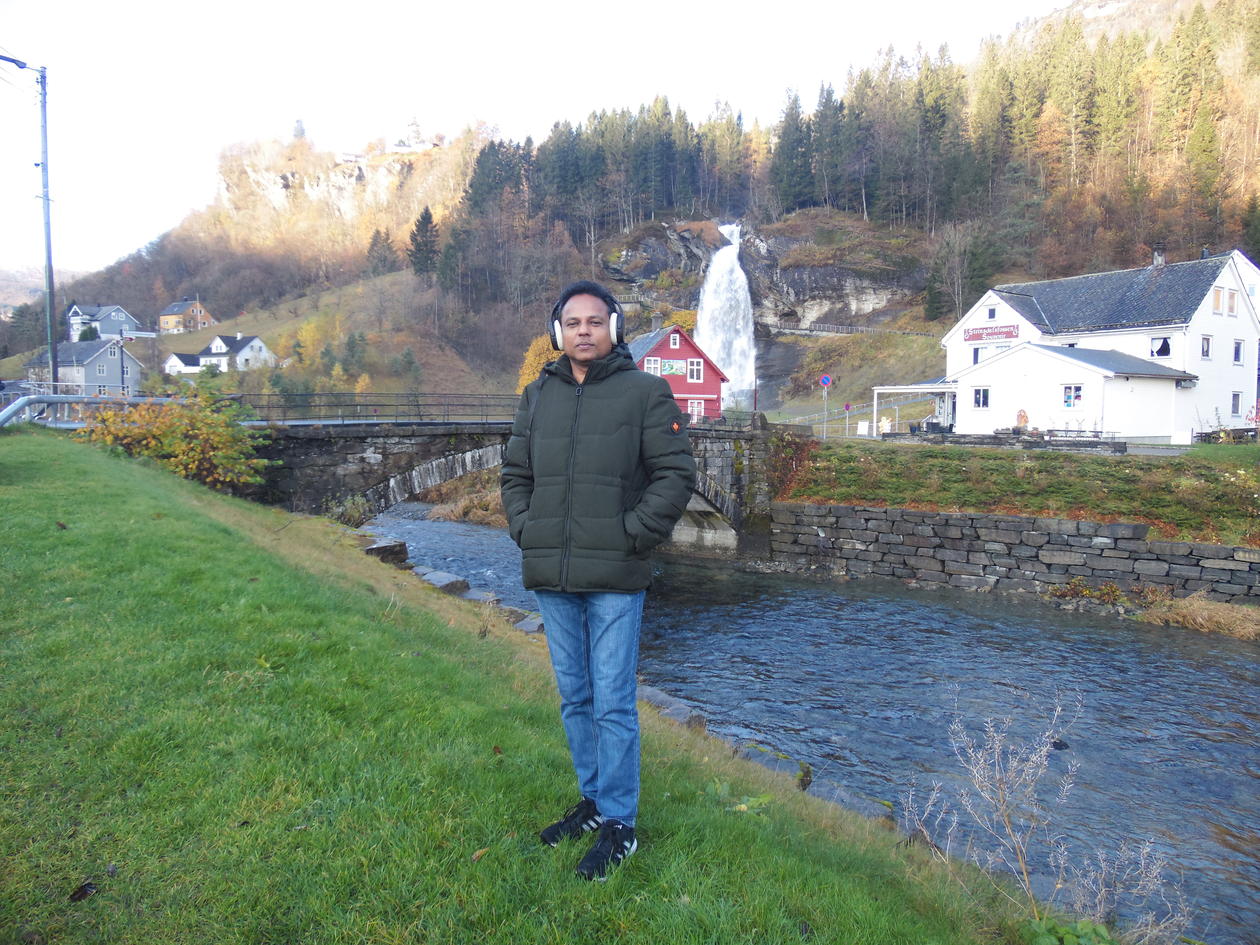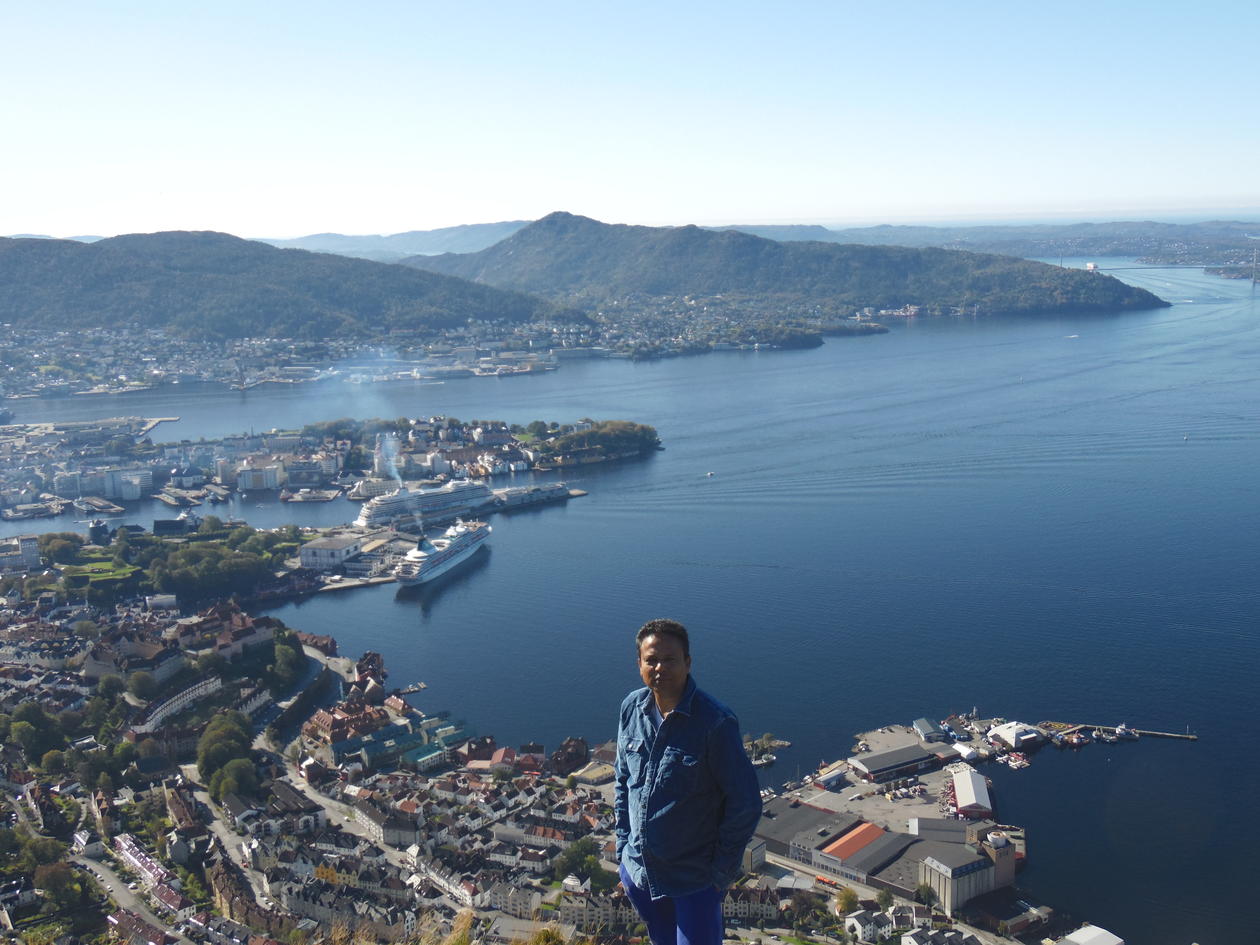Reflections on Best Practice
An aspect of achieving SDG3 is exchanging knowledge and experience from different health systems. To this end, in Sri Lanka, medical doctors specialized in medical administration and seeking Medical Administration Board certification must complete at least 1 year of study under the supervision of a specialist in another country. Dr Asela Perera spent his year studying with Bente E. Moen at CIH in Norway.

Hovedinnhold
To strengthen their national Primary Health Care (PHC) systems, the Ministry of Health in Sri Lanka encourages aspiring Medical Administrators to travel abroad to learn more about other national PHC systems. Each candidate must live in another nation state for at least a year and engage in thorough studies of their host country’s PHC systems, under the supervision of a specialist in the host country. On returning home, the candidate submits a portfolio of reports to the Certification Board. If considered worthy, the candidate is invited to defend the portfolio before a jury of Board members and any other Ministry or medical specialists deemed to be relevant.
Choosing Norway as host country
Perera decided not to follow the usual route of travelling to the UK or Australia, the most commonly chosen host countries. His final choice was between CIH, at UiB in Norway or the University of Alberta, in Edmonton, Canada. Thanks to the support and interest of CIH Director, Bente E. Moen, Perera selected Bergen.
However, that was only the first step. As many visiting students and staff will attest, international travel, particularly for stays of any length of time, is not easy. Regulations in both host and home countries can be difficult hurdles to overcome. For Perera, VISA and other paperwork delays meant that his family’s arrival was delayed over 4 months.
Objectives and Methodology
Once in Bergen, however, and thanks to Moen’s very broad network of colleagues, Perera was able to begin the process of learning about the Norwegian health care system with a special emphasis on the PHC systems. The framework for his study period including a clear list of objectives, and a proscribed methodology. See the fact box for more information.
Specific systems studies
- Maternal and child health
- Senior care
- Registries (especially the Norwegian Birth Registry)
- Mental Health
- PHC (in general)
- Health inequality issues
- Noncommunicable diseases
- Occupational Health
- Emergency care including ambulance and air ambulance service.
Perera has written reports about all the specific systems he studied. Some of these reports have been submitted / published as academic papers.
Reflections on the experience
In addition to having had numerous positive, stimulating, and informative professional experiences, coming to Norway from Sri Lanka involved many cultural and meteorological challenges. One learns the most about another country by actually having to live there. Making one’s way through the maze of any foreign bureaucracy always takes more time than one would ever predict. This can lead to uncertainties about everyday details such as funds, dwelling place, movement, and social services. One also, paradoxically, learns more about one’s own country, as the experience causes one to reflect on things one has taken for granted when living there.
Overall, Perera feels that the experience has been positive. With COVID-19, his lived experiences will be even more valuable for sharing with colleagues in Sri Lanka.
Building new collaborations
CIH will build on Perera’s vist by involving him in a Master project studying an Occupational Health issue, “Work and health in the coir industry”. This may lead to more collaborations in the future. Perera says that there is a strong collaboration between Sri Lanka and the School of Global Health at the University of Copenhagen, so there are already Scandinavian-Sri Lankan collaboration traditions CIH can build on.

